All on Four Dental Implants
What are all on four dental implants?
A fixed dental prosthesis is supported by four dental implants that are placed in the jawbone as part of a full arch restoration approach known as All on four. For patients who have lost the majority or all of their teeth in an arch, this treatment concept was created as an alternative to conventional dentures or numerous individual dental implants.
Compared to conventional dentures or individual dental implants, All on four dental implants have a number of benefits, including quicker healing times, more stability, superior aesthetics, and better long-term results. To find out if you are a good candidate for All on four dental implants, however, you need speak with a trained dental practitioner about your unique oral health requirements.
Who are good candidates for all on 4 dental implants?
All on four dental implants may be a suitable option for a large number of individuals who have lost teeth and are looking for a long-lasting, useful, and visually pleasing replacement. All on Four implants can be a good option for the following general characteristics, while each case is different and requires a thorough examination by a dentist:
- Significant Tooth Loss
- Adequate Jawbone Density
- Good Oral Health
- The General Health of Patient
- Commitment to Oral Hygiene
- Realistic Expactation
- Adequate Space for Implants
- No Smoking
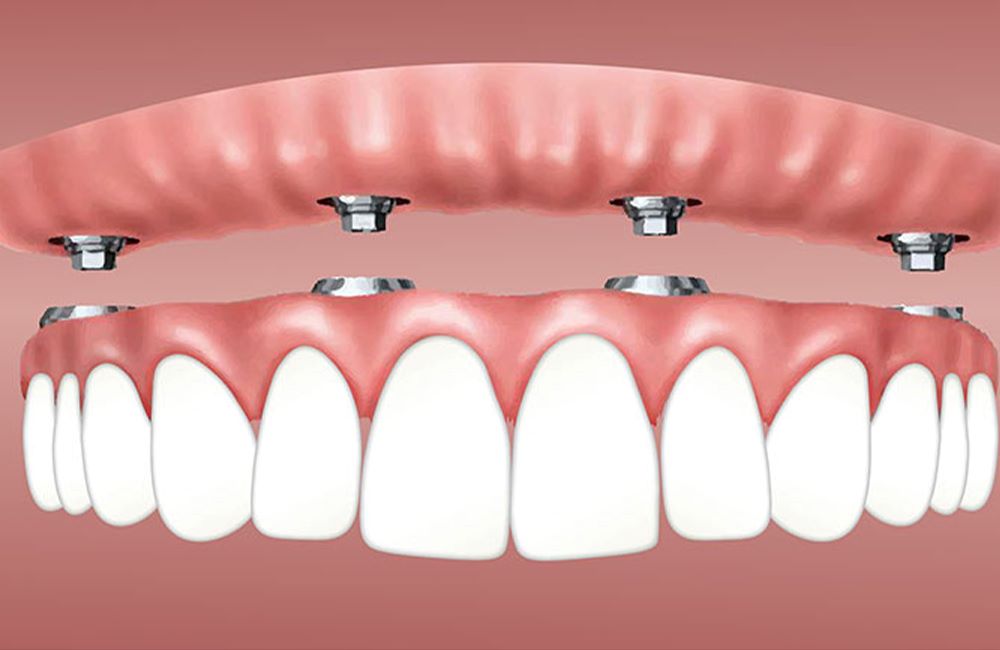
In order to avoid implant failure and to improve the healing process, your dentist may advise quitting smoking before the treatment.
It is important to consult with a qualified dentist to determine if you are a good candidate for All on Four dental implants. After evaluating your specific oral health situation and performing any necessary imaging and testing, they will discuss the best course of action for your goals and requirements.
Please click here to get more info!
What are benefits of all on 4 dental implants? What are advantages and disadvantages of All on 4 dental implants?
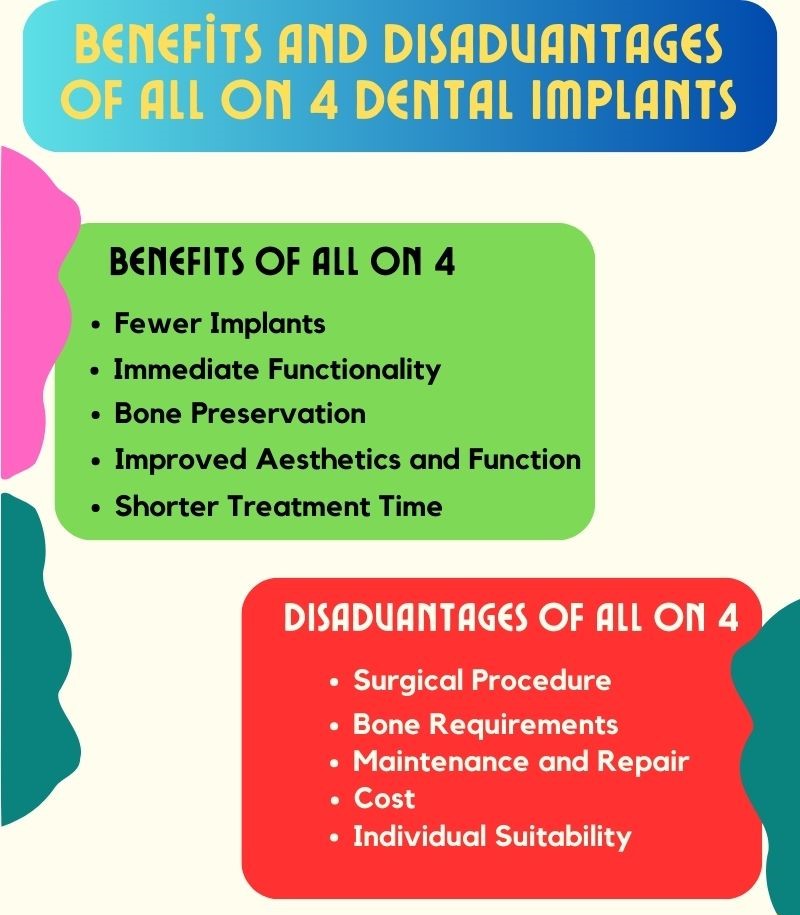
Benefits:
- Fewer Implants: Unlike standard implant-supported restorations, which may require six or more implants, all-on-four implants only require four implants per arch.
- Immediate Functionality: Since all-on-four implants enable instant loading, a temporary prosthesis can be connected the same day as the implant procedure.
- Bone Preservation: All on four aids in maintaining the current mandible and halts additional bone loss.
- Improved Aesthetics and Function
- Shorter Treatment Time
Disadvantages:
- Surgical Procedure: Placing an all-on-four implant requires surgery, which entails risks include bleeding, infection, and injury to neighbouring structures.
- Bone Requirements: For All-on-Four implants to be successful, there must be sufficient bone volume and density.
- Maintenance and Repair: It entails routine dental checkups for cleaning, prosthesis adjustment, and resolution of any potential problems.
- Cost: Overall expenses may still be high.
- Individual Suitability: Not every person is a good candidate for all-on-four implants.
Please click here to get more info!
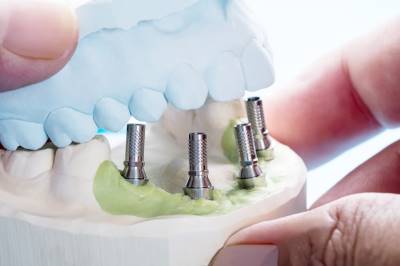
What to do before all on 4 dental implant surgery?
- Consultation and assessment:
Make an appointment for a consultation with a dentist who is certified.
- Treatment Planning:
The dentist will design a comprehensive treatment plan that meets your specific needs.
- Oral health optimization:
It is necessary to have a healthy mouth prior to implant surgery.
- Radiographic Imaging:
Before the All on Four procedure, the dentist will likely take radiographic pictures of your jaw, such as X-rays or a cone beam computed tomography scan.
- Medication Review:
Inform your dentist about all medications you take, including over-the-counter, prescription, and herbal supplements.
- Smoking Cessation
- Pre-operative Instructions Nutrition and Diet
Maintain a balanced diet before surgery to promote the best possible recovery.
- Transportation and Support:
On the day of the procedure, make arrangements for transportation to and from the dental office because you might feel sore or sleepy afterwards.
Please click here to get more info!
How is performed all on 4 dental implant surgery?
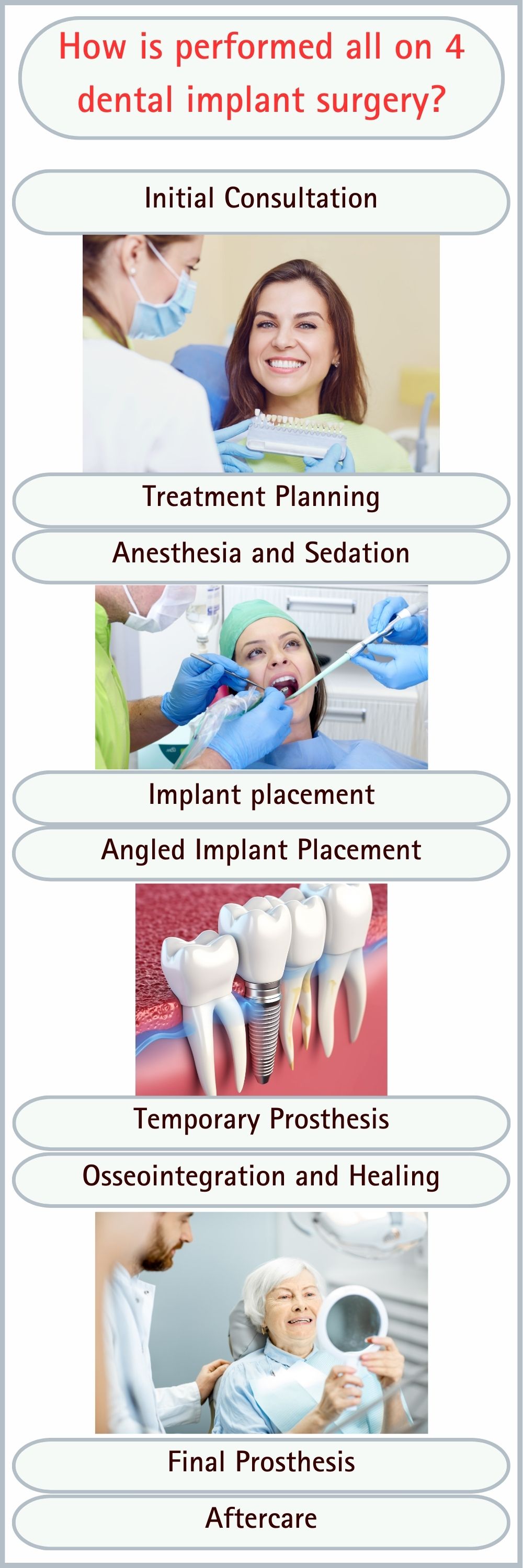
The general procedure for doing the All on four dental implant surgery is described in the following detail:
- Initial Consultation: This include a thorough examination, a review of your medical history, and imaging (such X-rays or CT scans) to assess the health of your jawbone and organize the procedure.
- Treatment Planning: The dental professional will create a personalized treatment plan that is catered to your particular needs based on the evaluation and imaging results.
- Anesthesia and Sedation: In order to assure your comfort and relaxation throughout the treatment, sedation may also be offered.
- Implant placement: Four implants are positioned per arch in carefully considered ways to offer the most support and stability.
- Temporary Prosthesis: A bridge or temporary prosthesis is often fastened to the implants.
- Healing: It's crucial to adhere to the post-operative care guidelines given by your dentist during this healing phase.
- Final Prosthesis: After the healing process is over and the implants have fully fused with the bone, impressions and measurements are acquired to create a unique final prosthesis.
- Aftercare: To guarantee the long-term success of your All on four implants, you will still require routine dental checkups and maintenance appointments.
Please click here to get more info!
FREQUENTLY ASKED QUESTIONS
How is healing period after all on 4 dental implant surgery? What should I do after all on 4 dental implant surgery?
- Immediate Post-Operative Period: You can have some soreness, swelling, and bruises in the treated area. This is treatable as normal with cold compresses and prescribed medicines.
- Initial Healing: The initial few days are crucial. It's important to rest, avoid physically demanding activities, and consume soft meals to minimise any stress.
- Bone Integration (Osseointegration): Over several months, the bone grows and adhere to the implant surface.
- Follow-Up sessions:Your dentist will schedule follow-up appointments in order to monitor the healing process's progress.
- Maintaining proper dental hygiene is essential during the healing process.
- Temporary Prosthesis: After All on Four surgery, a temporary prosthesis is usually placed immediately after the procedure.
- Dietary Restrictions: During the initial days after recovery, your dentist may suggest a lower-calorie diet.
- Patience and Rest:Try to get as much rest as you can during the initial healing phase.
Is all on 4 dental implant surgery safe in Turkey?
Yes, it is safe to get all on four dental implants in Turkey.
People from all over the world are drawn to Turkey due to its rising popularity as a destination for dental tourists searching for excellent and fairly affordable dental care, including All on Four implant surgery. Turkey has a large number of highly skilled and reputable dentists, just like any other nation, but it is still wise to exercise caution and do your homework before choosing a dentist for your All-on-Four implant operation. Consider these factors while assessing a Turkish dentist's credibility:
- Verify the dentist’s experience,
- Examine the quality of the dental clinic,
- Find more about the follow-up sessions and post-operative treatment offered by the dental clinic.
- Request references from previous patients with all on four implants,
- Conducting comprehensive research, reading evaluations, and corresponding with several Turkish dental clinics are essential.
Are all on four dental implants comfortable?
The aim of all-on-four dental implants is to provide a comfortable and useful substitute for those who are missing all or most of an entire dental arch. Individual differences in personal traits and potential treatment adjustments may mean that comfort levels vary from person to person.
Please click here to get more info!How long do all on 4 dental implants last?
All on four dental implants are intended to offer a long-term full-arch tooth replacement option, however it's crucial to realise that implant outcomes might not last indefinitely. With the right upkeep and care, all on four dental implants can last for many years, at least 20 to 25 years.
Please click here to get more info!How to clean All on 4 dental implants?
Are all on 4 implants worth it?
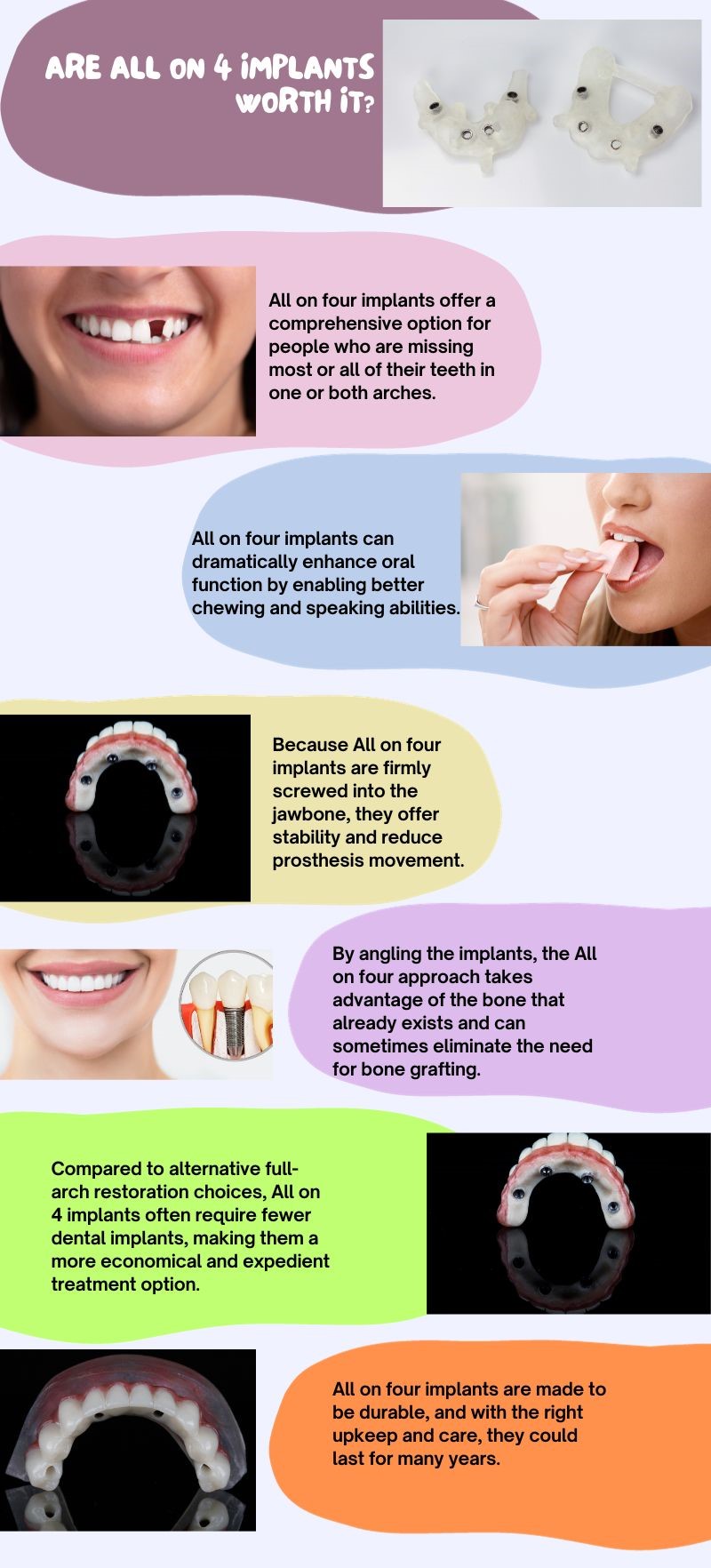
Yes, getting all four dental implants done in Turkey is worth it.
All on 4 implants are a more affordable and quick treatment option since they frequently require fewer dental implants than other full-arch restoration options. The accelerated healing time and simplified procedure can be helpful to people looking for a quicker solution.
Because all-on-four implants are designed to be strong, they may last for many years with the correct maintenance. This can provide value and peace of mind because there is less need for ongoing maintenance or replacements than with traditional dentures.
Please click here to get more info!POPULAR QUESTİONS
How much do All on 4 implants cost in Turkey?
The cost of all-on-4 dental implants in Turkey ranges from $4000 to $10000. The materials to be utilised, the dentist doing the treatment, the clinic's location, any potential need for additional treatments and the people's conditions determine the cost of All-on-4 dental implants in Turkey.
What is the downside of All-on-4 dental implants?
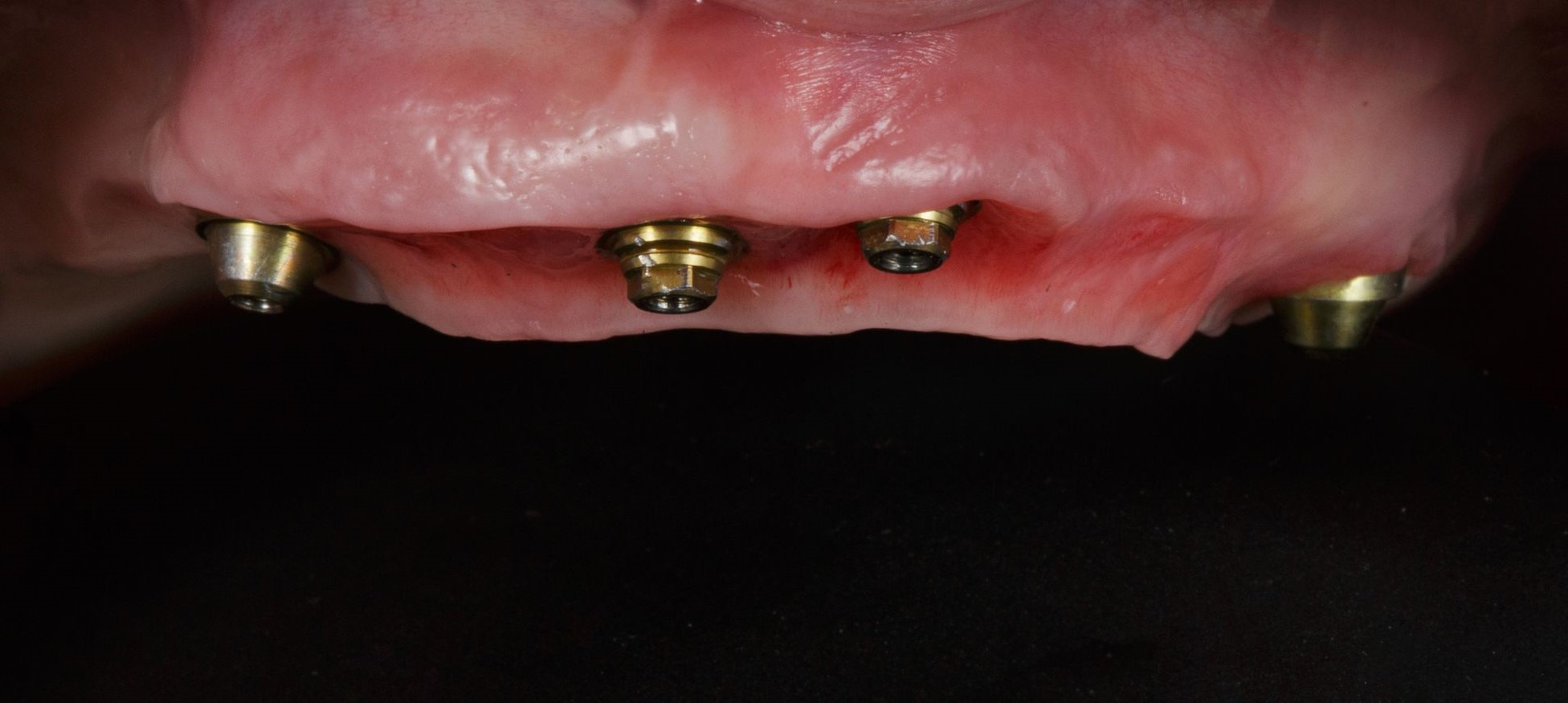
How painful is All-on-4 dental implants?
In accordance with the level of the patient's anxiety, the dentist will administer local anaesthesia, sedation, or general anaesthesia.
It is typical to experience some soreness following the surgery. Dentists can prescribe medicines to help alleviate these pains. Following post-operative advice, such as avoiding firm or chewy meals that could put pressure on the surgical area, can also help to minimise any discomfort felt throughout the healing period.
What is the failure rate of all on 4 dental implants?
All-on-4 dental implants have a failure rate of 3 to 6 percent.
How long do all on 4 implants last?
When properly cared for and maintained, all-on-four dental implants can endure average for 20 years or more, and in certain situations, a lifetime. It is important to remember that a person's lifestyle choices, general health, bite alignment, and dental hygiene can all have an impact on how long implants last.
Which is better all on 4 or all on 6?
In an all-on-6 dental implant procedure, six dental implants can support a full arch of teeth. In contrast to the All on Four method, this technique provides increased support and stability. However, all on four dental implants are more affordable than all on six dental implants.
How much does full dental implants cost in Turkey?
In Turkey, the typical cost of a single dental implant might be anywhere from $500 and $1500. Dental offices in Turkey may provide package discounts or package offers for full mouth implants

Do all on 4 dental implants look real?
All on 4 dental implants restore the ability to bite, chew, and talk normally while also giving a grin that looks natural. Fixed prostheses provide assurance, comfort, and stability without causing slippage or movement of the denture.
Can you get All-on-4 in Turkey?
All-on-four dental implants are more affordable in Turkey than in many other countries, which makes it a popular destination for dental tourism. You can reduce the entire cost of the surgery with all on4 implants.
If you have any questions you do not find here, please contact us.
